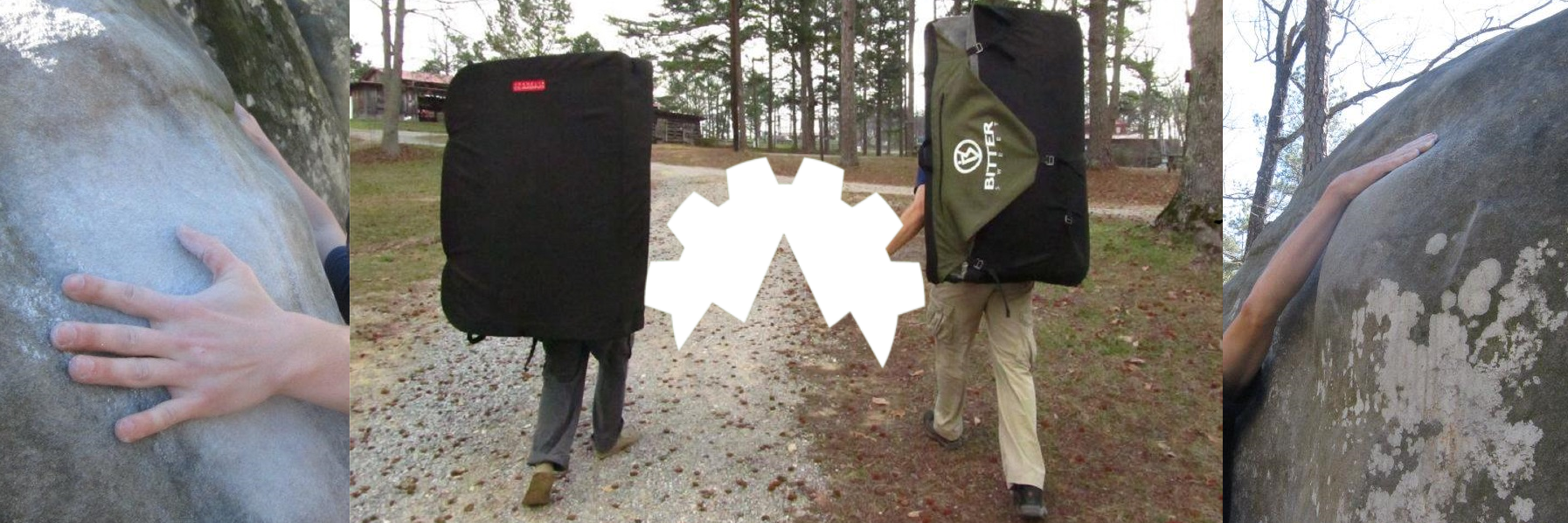I took a philosophy class or two in college, but in reading through “The Boulder – A Philosophy for Bouldering”, I worry I am not the target audience. Before I dive into writing this review, let me say this isn’t even the first review of this book within my circle of friends – Robin did a great review, author interview inclusive.
Admittedly, my little engineering brain has a hard time parsing words like “milieu”. While I struggled in early chapters to really feel like I was understanding the philosophical concepts Francis Sanzaro was getting at (boulderers of a certain age are free to take a moment to make a ‘Stripes’ reference now), by the back half I felt like I was following along pretty well. Not agreeing on all points, but at least understanding. Francis starts off analogizing bouldering to all sorts of things – field sports, dance, architecture, gymnastics, and more. Some I follow, some are a stretch.
There are a lot of things Francis and I don’t see eye to eye on, or that I find outright preposterous. Through the first chapter or two, the word “pretentious” smacked me repeatedly, before I got over the concept of the book as a whole and really started listening. Sometimes he just says crazy stuff like “The boulderer rarely screams – it is an art of silence”. He must not know my friends. Other times I am snarky and catch a contradiction, as in: “We do not touch the stone. We are equally touched by it.” So…. it doesn’t touch us either? As an engineer, I cringe in the areas where he plays a little fast and loose with words like ‘tension’ and ‘force’, and talks about ‘pushing rope’. The word ‘movement’, while it is a central theme of two chapters, makes so many appearances I lost count.
For all that complaining, there are a lot I like in this book. In two sentences, he mentions all three members of the Holy-Trinity of boulders ahead of their era – John Gill, Jim Holloway, and James Litz. In another section, he references a sports icon that everyone should take time to learn about, Bob Beamon. He discusses the trouble with the Olympics, and even offers up a truth I had considered, we need commentators that can make it intelligible to the lay person, in a catchy way. “We need a John Madden of bouldering.”
Then, this gem pops up: “An excellent athlete hides his training like a good paint job on an old Buick.” A Mike Tyson reference follows – this combo both strikes at a real truth, and makes me reminisce to Bob Scarpelli comparing offwidth climbing to the ‘sweet science’ of boxing. The brutality of the act disguises the craft, and it really is true craftmanship at the high levels. Also, I own an old Buick, so double points there.
Bouldering, for me, is something simple, visceral. While I will rehearse a project or replay greatest hits in my head to help me sleep, I’ve never looked deep within myself and asked the age old philosophical trope: “Why?” I like bouldering over roped climbing because there’s very little to it, I like it because I don’t have to think. Francis has taken the time to ask ‘Why’, has unpacked everything until simple words like ‘movement’ were beaten and repeated until they no longer resembled… anything. And while there is a lot we don’t agree on, I think that might be the most important part of this book, and how it best helped my frame bouldering for myself. Without a foil, without an alternative to challenge our perception, we’ll never really know where we stand. It is for that reason, I cast my Verdict.
Verdict: Borrow It. This isn’t light reading, but if you are a fan of the big questions, a philosophy nerd, or just want to point and laugh at someone spending 177 pages of navel-gazing about pebble-wrestling, you’ll get a kick out of this book.
